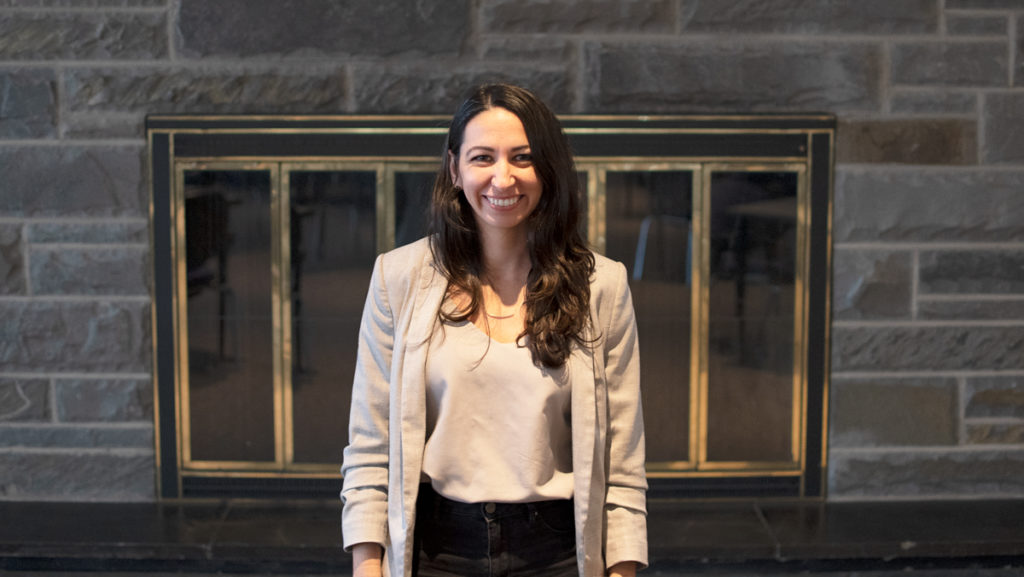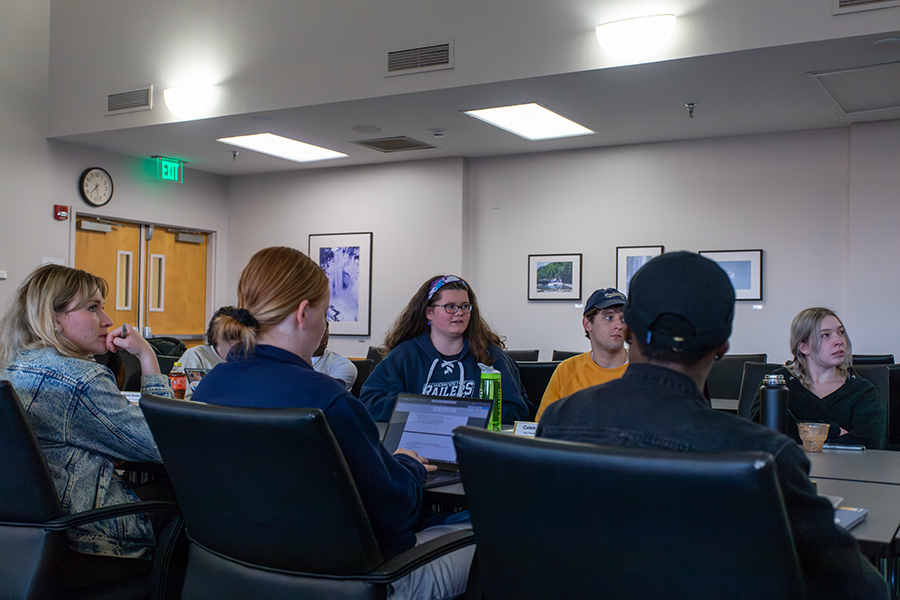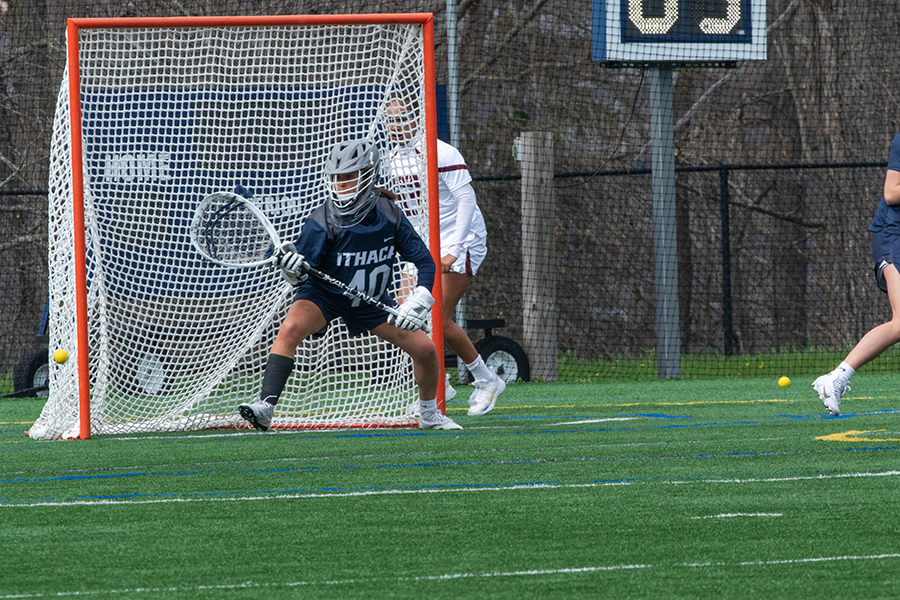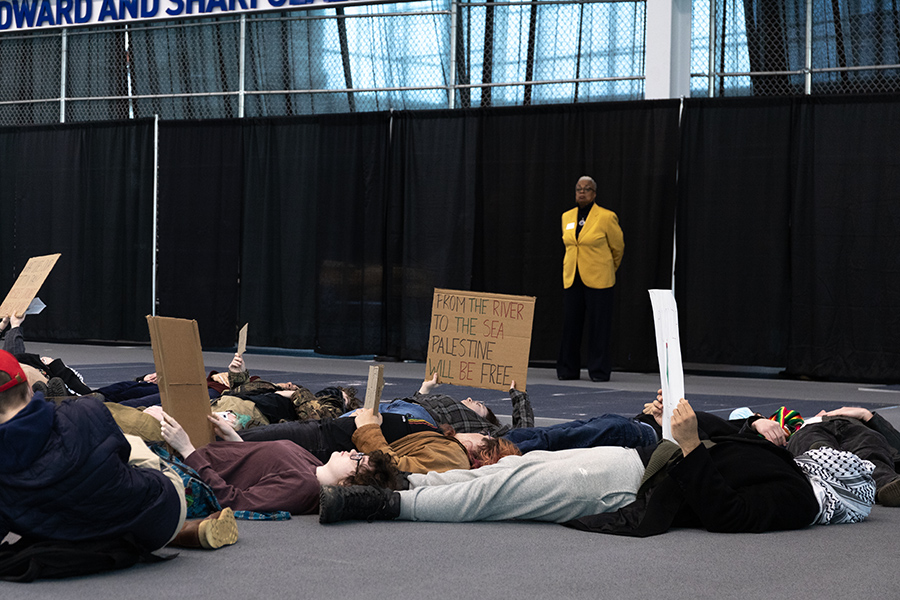A new program at Ithaca College, IC Responsibility (ICR), aims to educate students about intervention to ensure that violence prevention education goes further than just the two months of National Domestic Violence Awareness Month in October and Sexual Assault Awareness Month in April.
The program, led by a team of five faculty and staff members at the college, offers workshops about being a pro-social bystander, which is a person who intervenes in potentially negative situations and teaches intervention strategies to help students respond to potentially violent situations. The committee includes Omar Stoute, deputy Title IX coordinator in the Division of Legal Affairs; Linda Koenig, Title IX coordinator in the Division of Legal Affairs; Elyse Nepa, Clery Act and crime prevention coordinator in the Office of Public Safety and Emergency Management; Natasha Bharj, assistant professor in the Department of Psychology; and Samantha Elebiary, program director of the BOLD Women’s Leadership Network.
All of the members of the ICR committee are a part of the Sexual Violence and Prevention Committee, which will still operate with the addition of ICR. Stoute said the feedback from students who have taken existing workshops was that they wanted a multifaceted program. The Bystander Intervention Certification Program, which is a part of ICR, allows students to take multiple workshops to build their skills to become a pro-social bystander.
Syracuse University’s Barnes Center at The Arch defines a bystander as an individual who observes or witnesses an event they are not directly a part of, and by doing nothing to intervene, contributes to negative behavior. Instead, a pro-social bystander intervenes to make a positive impact on the situation.
Nepa said the committee believes that a well-rounded education about how students can be pro-social bystanders will help students feel empowered to intervene and increase campus safety.
“Our hope is that by empowering students with the skills to be pro-social bystanders … to know what to do in a situation, that we will create a better outcome for all of our students here,” Nepa said.
Elebiary said that violence on campus can include aggressive and violent high-level crimes like rape, but that those types of events don’t happen in a vacuum. She also said lower–level situations like insensitive jokes or inappropriate comments create a culture where high-level situations of violence can occur.
“We’re also teaching people not only to know how to recognize and intervene in those really high-level, super dangerous and violent situations, but also the really low–level things,” Elebiary said.
Elebiary talked about the importance of intervening in low–level situations. She said if students are experiencing constant, everyday aggressions against an aspect of their identity or something they care about, it affects their mental health and social well-being.
“It’s another reason why it’s important for all of us to be aware … and intervene in these situations, so that we can protect not only ourselves, but each other,” Elebiary said. “Because when we do that, I think it just creates a more supportive community overall.”
The college has a one-meeting workshop called “Bringing in the Bystander” that the Advocacy Center of Tompkins County has run since 2015. The program was developed by the University of New Hampshire and is geared towards sexual violence and relationship and dating violence.
Stoute said the IC Responsibility: Bringing in the Bystander Certificate Program includes the “Bringing in the Bystander” workshop, but has many other courses like “Understanding Your Identity” and “Facilitation and Leadership” to give students a more well-rounded, pro-social bystander education.
“[Students] are looking for opportunities that are going to be with them throughout their entire campus experience,” Stoute said. “So part of this program is expanding beyond sexual violence prevention and talk about the intersections of violence and helping students to be able to connect those dots in real time.”
Nepa said ICR is bringing many existing programs at the college under one umbrella.
“We all realized … that prevention education goes far beyond just two months a year,” Nepa said. “And while we were offering a lot of programs, bystander intervention programs and affirmative consent from Title IX and others from the Center for [Inclusion Diversity Equity and Social Change] … we wanted to bring it into one area.”
The certification program has a core track of workshops that students will need to complete. In addition, a student will have to complete at least one additional track. The other tracks are First Responder Education, Equity and Belonging, Self-Care and Supporting Survivors or Mental Health and Well Being. These tracks are led by campus partners like Public Safety, the Center for Counseling and Psychological Services (CAPS), the Center for Health Promotions and the Southern Tier AIDS Program.The last requirement is the completion of a portfolio project before a student can apply for a certificate.
Stoute said that the certificate program will help students not just in college, but post-graduation as well.
Elebiary said the certificate is something students could show to graduate schools or potential employers and be a very marketable skill.
“We really want students to think about this in the rest of their life,” Elebiary said. “So as they’re in graduate school classes or in their relationships post graduation or in the work field … they can put that all together to really be a professional and leadership experience.”
Stoute said another idea the committee has is to bring this certificate program to students in leadership positions at the college, like resident assistants, student auxiliary patrol members and student athletes.
Students who want to get involved with the program can sign up for workshops on IC Engage and attend events. Stoute said a survey is being made where students can say they are interested in the certificate program and will receive emails with updates about what programs are being offered.








